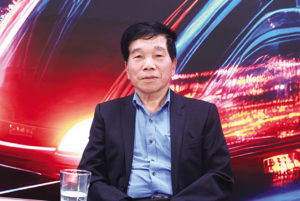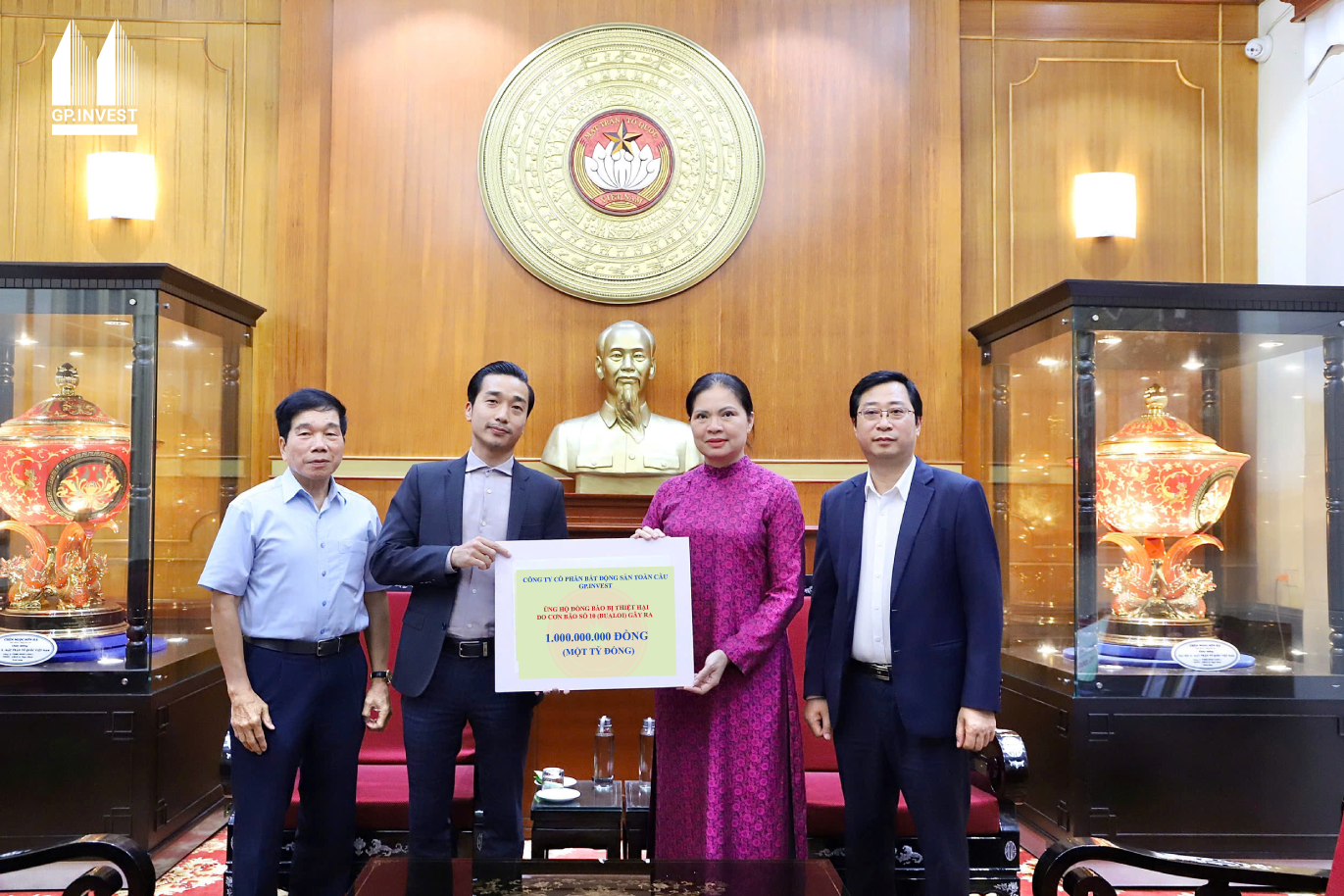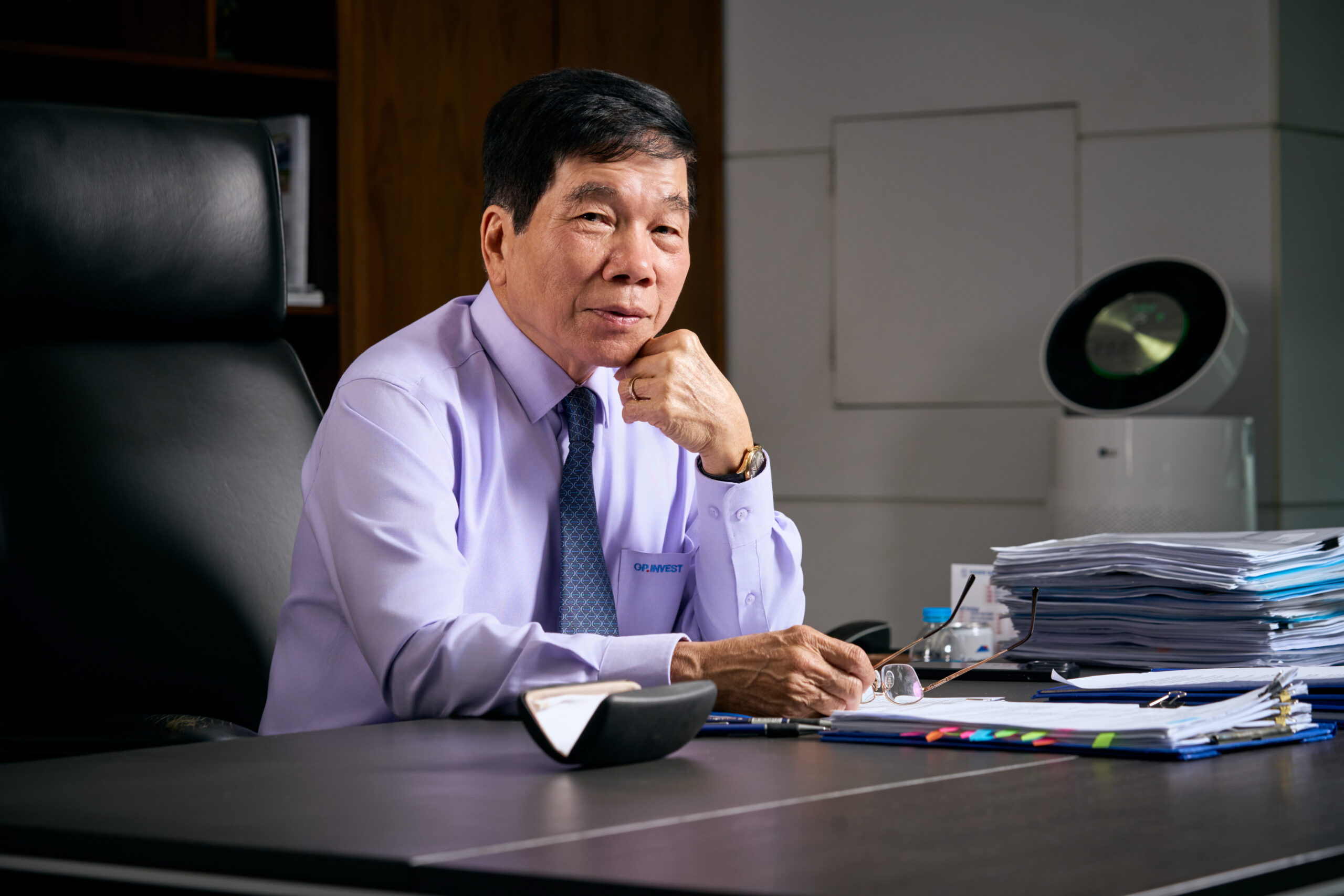People often know him simply as the Chairman of GP.Invest, a regular figure at economic and real estate conferences, or at business and investment forums. But this man, now nearly 80 years old, is not only proud of his contributions in the business world, but also cherishes his youthful days spent marching along the Truong Son mountain range to serve the nation.
A Young Teacher Determined to Go to War
Born and raised in Hanoi’s Old Quarter (Thuoc Bac Street), Mr. Nguyen Quoc Hiep came from a privileged background—his mother ran a hardware store, and his father worked for a French trading company. At just 4 or 5 years old, he was already attending Lycee Albert Sarraut, a primary school reserved for the children of wealthy and respected families in northern Vietnam.
After the historic victory at Dien Bien Phu and the restoration of peace in the North, he transferred to Tran Nhat Duat School—one of Hanoi’s top institutions in the post-liberation era. During his secondary and high school years, he excelled in the sciences and represented his school in Hanoi’s physics competitions. At the same time, he actively participated in sports and physical education.
After graduating from a pedagogical college, he was assigned to teach mathematics and physics at My Hao Secondary School (Hung Yen Province). In his very first year, the Provincial Education Department recognized him as an outstanding math teacher, and by the end of his second year, he was offered the position of Vice Principal at Nhan Hoa Secondary School.
“Teaching is a noble profession—recognized for both knowledge and moral values. A promising career path lay ahead, something many colleagues aspired to. Success comes slowly in any field, especially education. But I kept pondering: while our country was at war, and wave after wave of young men went off to fight, how could I remain safely at home, teaching? Wouldn’t that be just like Teacher Thu in Nam Cao’s Living in Vain? I spent many sleepless nights wrestling with the choice between staying or going,” Mr. Hiep recalled.
As the war intensified, Mr. Hiep felt increasingly compelled to join the battlefield. Without informing his family, he volunteered for the Youth Shock Brigades. “It was a difficult decision for anyone in my position. Even now, I believe it was the right one. Before entering the battlefield, I had no real concept of life as a Truong Son soldier. I only knew it would be unimaginably harsh. But my mind was set: I had to overcome it—for the nation needed our dedication,” he shared.
From Youth Volunteer to Wartime “Journalist”
Before heading to the frontlines, the youth volunteers underwent a month of military-style training: marching, shooting, dodging aircraft, clearing roads, defusing bombs… just like combat engineers. After training, the young Hanoi teacher and his comrades headed south, trekking 25–30 km per day through forests with 30 kg of gear on their backs.
The battlefield was brutal—especially in Ha Tinh and Quang Binh provinces. Given his background as a teacher, Mr. Hiep was assigned to educate his fellow volunteers. By day, he “taught classes”; by night, he joined them on duty along the roads. Life was full of hardship—scorching heat during the dry season, sitting in A-shaped trenches, and during the wet season, enduring constant damp clothes.
After nearly two years on the front, his writing talent was noticed, and he was transferred to the Political Division to write morale-boosting articles for the monthly internal newsletter. He also sent writings and photographs to Nhan Dan (The People), Quan Doi Nhan Dan (People’s Army), Voice of Vietnam, and Tien Phong (The Vanguard), effectively becoming a true wartime reporter.
Though not a direct combatant, Mr. Hiep, as a “war correspondent,” accompanied countless soldiers along the Truong Son supply routes. He witnessed and reported on most of the fiercest hotspots along the legendary trail.
With a backpack and camera, he was always present at the frontlines to capture the heroism and sacrifices of Truong Son soldiers and volunteers—those who kept the vital traffic lines alive at all costs. Many of his articles and photos—signed under the pen name Quoc Nguyen—were published and broadcast, earning readers’ admiration. One piece, “Machine 161! Ready!”, depicting efforts to keep Route 10 clear, was named one of the best articles of the year.
Unforgettable Years
Spending nearly five years on the Truong Son trail during the most intense phase of the war, Mr. Hiep collected a lifetime of memories. Two, however, stood out—one involving journalist Hong Vinh (former Central Party Committee member, former Editor-in-Chief of Nhan Dan, and former President of the Vietnam Journalists Association).
“In modern warfare, artillery from the 7th Fleet was always coordinate-based. The first round would land far from the target (our transport trucks), the second closer, and by the fifth round, it would hit directly. Hong Vinh and I had hitched a ride on a truck to gather material for our articles. After the first artillery strike, the driver yelled for us to jump. Even though Hong Vinh was a trained war correspondent, he was still injured while jumping off,” Mr. Hiep recalled with emotion.
The second memory was escorting seven renowned musicians—Hong Dang, Tan Huyen, Van Dung, Chu Minh, among others—on a field trip along Route 12. The goal was for them to witness firsthand the lives of youth volunteers. Most memorable for Mr. Hiep was that this journey inspired composer Van Dung to write “Duong Truong Son xe anh qua” (On the Truong Son Trail, Your Truck Passes)—an iconic song of the anti-American resistance. It was a song every youth volunteer knew and wept over whenever it played.
“…Our youth came to the mountains and forests. Through rain, storm, and burning sun, we crossed danger to pave the way for your trucks to reach the front lines. You climbed steep hills and winding roads, carrying our love like the love of the homeland behind every step you take…” Mr. Hiep softly hummed as he recalled his comrades from over 50 years ago.
Although he later found great success in the business world, Mr. Nguyen Quoc Hiep has never forgotten his years as a youth volunteer and war reporter on the Truong Son trail. Nearly five years in the fiery frontlines during the campaign to “cut across Truong Son to save the country” shaped him profoundly. Whether as a leader of a state-owned construction enterprise, or later as the founder of GP Invest—guiding the company through hardships—he has always valued people and the bonds of camaraderie.
“In my mind, those years enduring hardship on the Truong Son trail were my time of forging strength and will. I’ll never forget the wartime years—where comrades shared food, water, took on the most dangerous tasks, and were even willing to die so others could live…,” Mr. Hiep reflected.




